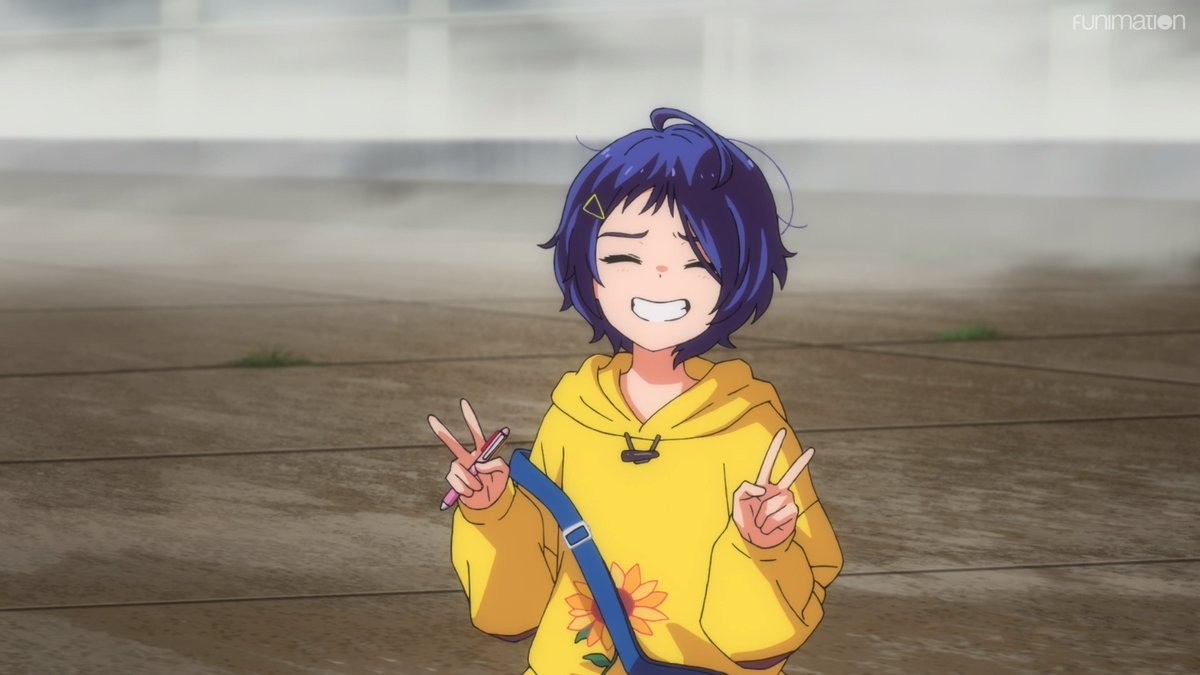THREAD: Who is Nojima Shinji, the J-drama author who just made his anime debut as  Wonder Egg Priority
Wonder Egg Priority  's writer - and what can his prior works tell us about the show's direction?
's writer - and what can his prior works tell us about the show's direction?
 Wonder Egg Priority
Wonder Egg Priority  's writer - and what can his prior works tell us about the show's direction?
's writer - and what can his prior works tell us about the show's direction?
Nojima was a university dropout, and after a period of time living in the United States, he returned to Japan and, following a scriptwriting contest, made his debut as a scriptwriter with the 1988 series Kimi ga Uso wo Tsuita 君が嘘をついた
The golden age of Nojima’s writing is generally considered to be the 90s. He wrote a large number of J-drama in this time period, mostly focusing on romance but often with dark topics such as incest, sexual assault, and suicide https://www.buzzfeed.com/jp/yuikashima/chi-na-ki-go-koukoukyoushi-90-nendai-wakamono-no-kyou-wo-e-g
One of Nojima’s better known drama series from this period, for example, is 高校教師 (Koukou Kyoushi), which covers a number of topics considered taboo in Japanese society at the time - from student-teacher romance, to LGBT+ issues.
The third episode, titled 同性愛 (“homosexuality”), focuses on a girl who is in love with the female lead
The next year in 1994, Nojima wrote another dark drama including LGBT+ characters, with Ningen Shikaku ~Tatoeba Boku Ga Shindara~ featuring a M/M kiss scene https://entertainment-topics.jp/7313
In 2008 Nojima released a novel, スヌスムムリクの恋人, about a trans girl character, which later recieved a 2-volume manga adaptation.
Reviews, such as this one from a trans blogger, praise the writing and characters but take issue with some of the queer rep, such as the progression of one character’s HIV diagnosis, and Nono recieving bottom surgery at age 17. https://nakanohitsuji.hatenablog.com/entry/2017/11/25/200000
Nojima returned to LGBT+ themes in his writing with the 2019 series Yuri or Another 百合だのかんだの - I've only watched the first episode of this, but its certainly quite offbeat https://www.viki.com/tv/37464c
After 3 decades writing live-action drama, why has Nojima now written his first anime? A drama critic quoted in this piece explains that there is a growing gap since the 90s between what Nojima wants to write
and what J-drama audiences are looking for. In the production process, due to sponsorship there is greater restrictions on depicting controversial subjects.
A sign of this could be Nojima’s 2014 drama series Ashita, Mama ga Inai, the airing of which was condemned by various orphanages and children’s welfare organisations in Japan. The shows’ sponsors all pulled out after the controversy started https://www.japantimes.co.jp/news/2014/03/01/national/media-national/trite-tv-drama-about-childrens-home-misses-a-chance-to-edify-and-entertain/
Another factor mentioned in the Yahoo article is the limits of what can be pulled off in live action. Indeed, some reviews I’ve seen of Nojima’s recent dramas comment that while the scripts are good they’re let down by the performances or otherwise poor execution.
Thank you for reading  if you've watched or read any of Nojima's works, please tell me what you think! Tomorrow I'll be putting out another thread about the very interesting staff behind this anime
if you've watched or read any of Nojima's works, please tell me what you think! Tomorrow I'll be putting out another thread about the very interesting staff behind this anime
 if you've watched or read any of Nojima's works, please tell me what you think! Tomorrow I'll be putting out another thread about the very interesting staff behind this anime
if you've watched or read any of Nojima's works, please tell me what you think! Tomorrow I'll be putting out another thread about the very interesting staff behind this anime

 Read on Twitter
Read on Twitter



